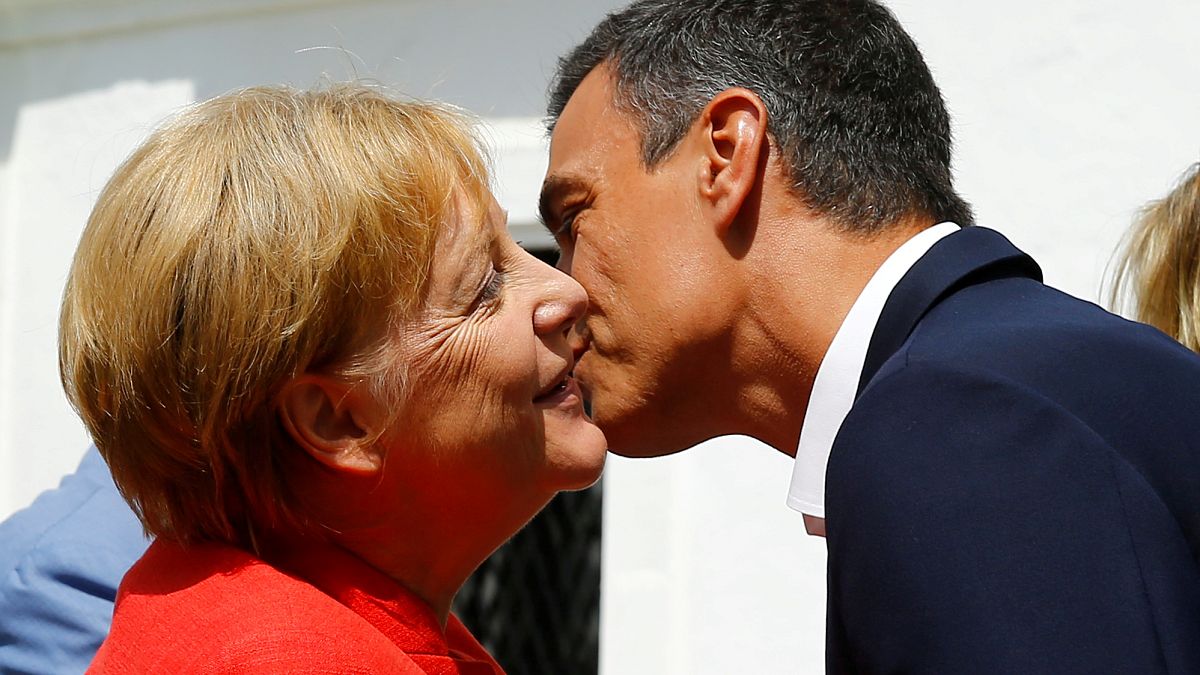Euronews' correspondent tells you all you need to know about the Germany-Spain migrant deal.
German Chancellor Angela Merkel and Spain's Prime Minister Pedro Sanchez showed unity over the migrant crisis when they met on Saturday.
But what did they decide on? Euronews' Germany Correspondent Jessica Saltz has the answers.
What did Merkel agree to in Spain with PM Pedro Sanchez?
Merkel criticised the current Dublin regulations for asylum procedure and migration redistribution as "not working properly". She called on a multilateral European response to migration, and a new joint approach to distribution around EU states and cooperation when it comes to repatriation. She also pledged support to Spain in negotiating with Morocco to curb the number of migrants crossing the Mediterranean into Europe by helping the country secure its external borders and crack down on smugglers.
What does the bilateral deal to return migrants to Spain mean in practice?
A deal was struck between the governments of Germany and Spain last Monday in which Spain agreed to take back migrants that traveled north to Germany, but who had first been registered in Spain. The deal came into effect on Saturday and the process of returning each migrant will take 48 hours. However it is currently only in effect on the part of the German border between Austria and Germany, a route very few migrants from Spain would travel to Germany because it is too far east. Germany's interior minister is still working on similar bilateral deals with Greece and Italy, which could prove difficult because of the new anti-migrant populist Italian government.
Merkel goes back to work on Monday after a two-week holiday. Is the migration debate behind her?
The new flow of migrants into Spain has reignited concerns in Germany. The liberal party (FDP) were the first to criticise Merkel's statement in Spain as not going far enough. They, as well as Conservative MPs, the CSU sister party believe a lot more needs to be done to curb migration into Europe, such as strengthening Europe's external borders. The interior ministry has provisional plans to control German borders along France, Benelux, and Switzerland to control migrants travelling north into Germany, and Seehofer is putting pressure on Merkel and the Social Democrats to establish his controversial 'Anker' reception centres for migrants across Germany. As Merkel heads back to the office, migration still remains an issue dividing the political spectrum.
